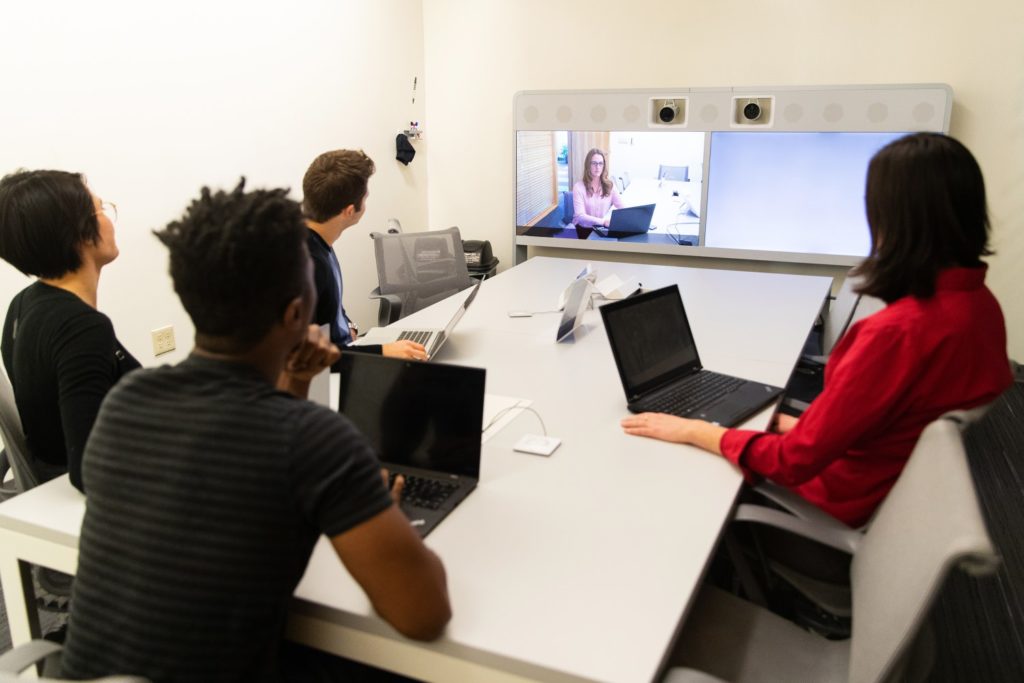 It used to be that if someone worked for your company, you would expect to find them in the office from 9 to 5, Monday through Friday. While this is still true of many businesses, changing tech and worker preferences mean that more and more businesses rely on remote employees.
It used to be that if someone worked for your company, you would expect to find them in the office from 9 to 5, Monday through Friday. While this is still true of many businesses, changing tech and worker preferences mean that more and more businesses rely on remote employees.
Studies show this trend isn’t going away anytime soon, with 55 percent of all remote workers doing all of their work outside of the office. Other research has found that the number of people in the United States who conduct at least half of their working hours from home increased by 115 percent between 2005 and 2017.
For scale-centric CEOs, this shift offers a great opportunity to grow your team while minimizing office overhead and increasing the number of potential candidates. But it can also create challenges for cultivating a strong company culture and managing those who don’t spend much time in the office. With the help of technology, however, you can effectively manage virtual teams to continually achieve great results — here’s how:
Technology should play a key role in establishing consistent work processes for your remote workers. Because you won’t be with your remote team to monitor work quality, you must equip your virtual team with resources that will appropriately guide their work.
Savvy CEOs will use customer relationship management (CRM) software and other relevant project management programs to coordinate work with their remote teams. These programs share data between users so that everyone is on the same page, while also cementing guidelines for the work.
For example, CRM tools organize business relationships, tech support, marketing campaigns, and customer service operations, recording all interactions so everyone is on the same page. Data is automatically recorded and shared. This way, employees don’t need to be in the same office to share important information.
ERP — or enterprise resource planning — is another software option that can keep your virtual team coordinated. ERP software tracks key issues such as production capacity and cash flow, with data shared between all departments. Automation will streamline efficiency and reduce human error.
As Mark Moses, founding partner of CEO Coaching International notes, however, businesses must constantly reevaluate whether a software program is delivering a meaningful return on investment:
“Maybe your bookkeeping and CRM are out of date because you’re using the same system mom and dad used when they opened the business 20 years ago. Put these activities into the Discontinue box. You don’t want to delegate these tasks, because the company needs to Stop Doing them.”
Though each member of your remote team will likely be using the same software to coordinate and collaborate on their projects, this doesn’t mean that everyone should have equal access to data or other crucial functions.
Digital security is crucial for protecting project outcomes, and properly managing permissions within your programs — or your website — will go a long way in protecting your company from errors or even malicious attacks that could occur when the wrong people have access to the wrong places.
This is why agencies like WebAct make personalized digital permissions a top priority. As founder and CEO Brian Lewis explained, their company chose agency website builder Duda because it “enables us to assign highly customized roles and permissions to our clients, so we don’t have to give them blanket access to a website.”
He continues, “Some of our customers are tech-savvy enough to make minor site changes on their own, and others would just break everything. The ability to easily turn on and off access for individual clients has saved us from hours of site maintenance work and a lot of headaches.”
Individualizing permissions within the digital platforms your remote team uses to conduct their work will ensure that everyone manages their responsibilities appropriately — while also preventing undesirable mishaps.
For example, you could establish permissions so that a remote website designer has the ability to view materials for an upcoming marketing campaign and integrate them with existing site content. However, they would not have permission to alter the campaign materials themselves — only the sales department could make such edits.
Such compartmentalization of your virtual staff ensures that data sharing doesn’t lead to costly errors, while still allowing you to streamline your team’s overall efficiency.
With a remote team, you can’t call someone into your office or stop them in the hallway to check in on the progress of a project or to see how they’re doing. In many ways, working with a virtual team requires more effort on the part of the CEO to ensure that they are holding everyone accountable and building the right culture and camaraderie.
In an interview with Chief Executive, Zapier CEO Wade Foster explained, “You have to talk about here’s how we debate things, here’s how we communicate things, here’s how we raise issues. And that can be a bit different from how you do it in an office.”
Continues Foster, “We use Slack to communicate, and just the other month one of our engineers created a set of emojis that represent our company values. And now when they see someone do something in Slack that is representative of those values, they’ll use an emoji reaction that represents those values. The company starts to kind of pick these up on their own and it now becomes like organically reinforcing things that drive your company forward.”
Slack channels are a great platform for impromptu communications or project collaboration, but the most effective CEOs understand that consistent communication will be crucial for getting the most out of their remote staff.
Consider using weekly videoconferences to check in with employees or make them full participants in meetings that occur in the office. This will make it easier to establish expectations, ensure compliance and accountability, and communicate culture.
While your business won’t necessarily shift to a fully-remote model anytime soon, there is no denying that virtual teams are playing an increasingly prominent role in today’s workforce.
By using technology to foster accountability while still demonstrating trust in your employees, you can get quality results and create an attractive work environment.

Chief Executive Group exists to improve the performance of U.S. CEOs, senior executives and public-company directors, helping you grow your companies, build your communities and strengthen society. Learn more at chiefexecutivegroup.com.
0

1:00 - 5:00 pm
Over 70% of Executives Surveyed Agree: Many Strategic Planning Efforts Lack Systematic Approach Tips for Enhancing Your Strategic Planning Process
Executives expressed frustration with their current strategic planning process. Issues include:
Steve Rutan and Denise Harrison have put together an afternoon workshop that will provide the tools you need to address these concerns. They have worked with hundreds of executives to develop a systematic approach that will enable your team to make better decisions during strategic planning. Steve and Denise will walk you through exercises for prioritizing your lists and steps that will reset and reinvigorate your process. This will be a hands-on workshop that will enable you to think about your business as you use the tools that are being presented. If you are ready for a Strategic Planning tune-up, select this workshop in your registration form. The additional fee of $695 will be added to your total.

2:00 - 5:00 pm
Female leaders face the same issues all leaders do, but they often face additional challenges too. In this peer session, we will facilitate a discussion of best practices and how to overcome common barriers to help women leaders be more effective within and outside their organizations.
Limited space available.

10:30 - 5:00 pm
General’s Retreat at Hermitage Golf Course
Sponsored by UBS
General’s Retreat, built in 1986 with architect Gary Roger Baird, has been voted the “Best Golf Course in Nashville” and is a “must play” when visiting the Nashville, Tennessee area. With the beautiful setting along the Cumberland River, golfers of all capabilities will thoroughly enjoy the golf, scenery and hospitality.
The golf outing fee includes transportation to and from the hotel, greens/cart fees, use of practice facilities, and boxed lunch. The bus will leave the hotel at 10:30 am for a noon shotgun start and return to the hotel after the cocktail reception following the completion of the round.